BRIGADIER GENERAL TOMMASO VITALE, CHIEF OF THE NATO MILITARY LIASON OFFICE (MLO) IN BELGRADE: Strengthening Serbia-NATO relations is of direct benefit for the whole region
In the 15 years since Serbia joined the Partnership for Peace program in 2006, together we have achieved significant results in political, military and scientific cooperation
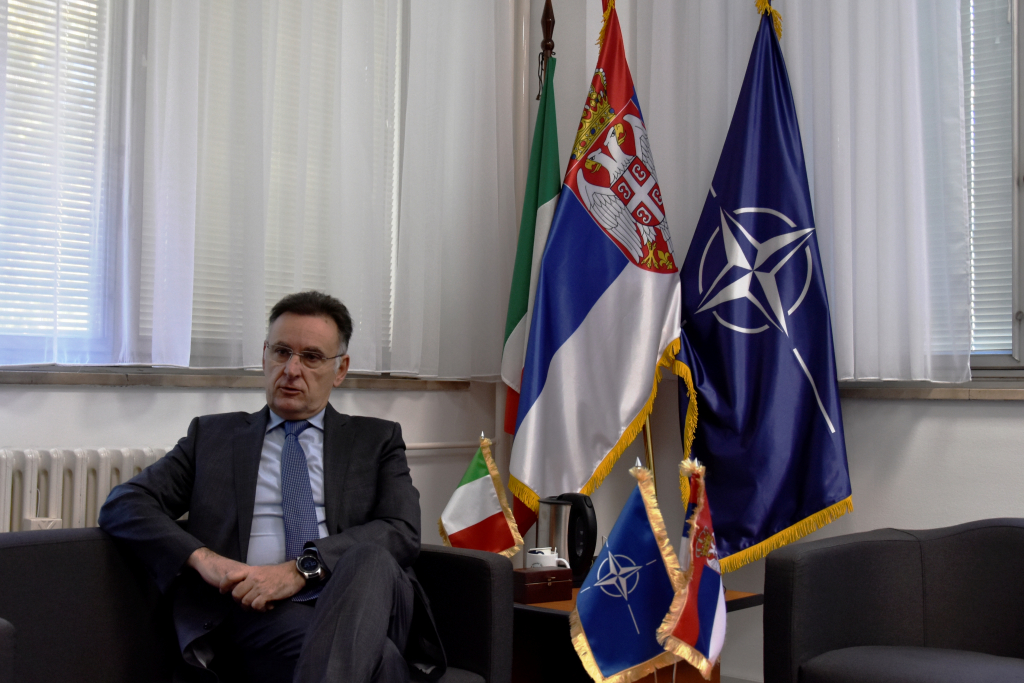
Foto: NATO
Serbia is our long-term partner and still your citizens are not aware of how much we achieve together, so we must make more efforts to jointly address disinformation campaigns, says in an interview with Srpski telegraf and Republika.rs Italian Brigadier General Tommaso Vitale, chief of the NATO Military Liaison Office (MLO) in Belgrade.
The head of the North Atlantic Alliance in our country talks about the joint projects of Serbia and NATO, the activities of the office he heads, the attitude of this military alliance towards the dialogue between Belgrade and Pristina, as well as of the time spent in the NATO-led KFOR mission in Kosovo where he as an officer along with his Italian soldiers rebuilt the square in the Serbian village of Gorazdevac.
This year will mark 15 years of NATO-Serbia partnership. What has already been achieved, and what could be expected in the future?
Since 2006, when Serbia joined the Partnership for Peace Programme, your country has been a valued partner for NATO, with NATO fully respecting Serbia’s stated policy of military neutrality. Serbia cooperates with the Alliance on many different levels, and across political, military and scientific domains.
It is important to point out that, under the PfP Programme framework, Serbia decides on the scope and pace of its cooperation with NATO, fully in accordance with its needs and priorities. In the past 15 years, we have achieved significant results. We have worked closely with Serbia on many different projects. An excellent example is seen in the domain of civil emergencies caused by natural disasters, such as floods and forest fires, for which we keep strengthening our joint preparedness by participating in NATO exercises together. The civil preparedness NATO exercise “Serbia 2018” – jointly organized and performed in Mladenovac by the Ministry of Interior of Serbia and the Euro-Atlantic Disaster Response Coordination Centre (EADRCC) – was a particularly important event, where we learned a lot from each other, through a very professional exchange of experiences and best practices. With around 2,000 personnel from 40 countries – including NATO members and partners – it was the largest exercise organized by the EADRCC, and the first hosted by Serbia. Most recently, Serbian military medics participated in a similar NATO exercise “North Macedonia 2021”, which was carried out in September 2021 in Ohrid and Struga with the participation of 27 Allies and partners and 16 regional and international organisations. On the military side, NATO trains Serbian soldiers for international peacekeeping missions; over 20 years we have invested millions of euros to help Serbia to destroy over 230 tons of obsolete ammunition; Serbia and NATO worked together to train Iraqi military medics, helping to support the Iraqi armed forces; and through many other programmes, NATO provides support for reform of Serbian security forces and institutions. Let me add that we have long-standing cooperation with Serbia in the scientific domain, through the NATO Science for Peace and Security Programme. Since 2006, Serbia has contributed to more than 30 activities under this Programme. These have included energy and environmental security, defence against chemical/biological/radiological/nuclear agents, counter-terrorism, cyber-defence, and human security. Let me also mention the support provided to Serbia by individual NATO Allies and partners, in response to the global COVID-19 pandemic. We believe this is the right way to strengthen our partnership, as long as our cooperation is based on a mutually beneficial basis.
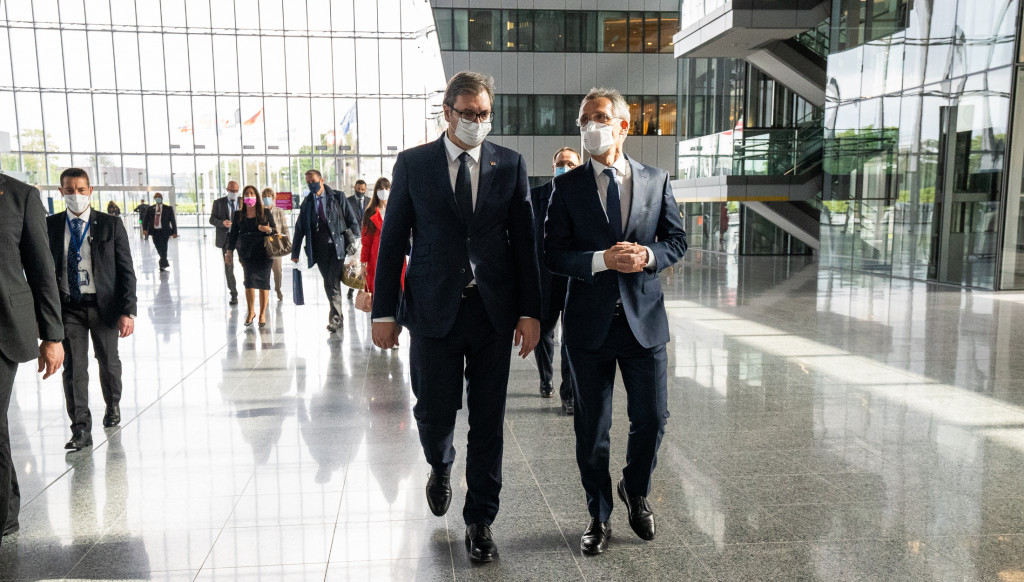
Foto: NATO
How would you assess Serbia-NATO relations today?
Serbia is our long-standing partner. We have well-established communication at the highest political level, thanks to the excellent personal relations between the President of Serbia, Aleksandar Vucic and NATO Secretary General Jens Stoltenberg. This in itself constitutes a solid platform for our continued political dialogue, which is key to strengthening our mutual understanding and trust. During your President’s visit to the NATO HQ in Brussels this past May, NATO Secretary General Stoltenberg praised his personal commitment to Serbia’s partnership with NATO and reaffirmed our long-standing commitment to supporting the consolidation of stability across the Western Balkans. This point was again made very loud and clear at the NATO Summit in Brussels in June by NATO Heads of State and Government, and it has been reflected in the Summit Communique’, where it has been pointed out that “We value the NATO-Serbia partnership” and that “Strengthening NATO-Serbia relations would be of benefit to the Alliance, to Serbia, and to the whole region”. I was extremely happy to hear President Aleksandar Vucic express his willingness to mark the 15th anniversary of the NATO-Serbia partnership. This would definitely be a great opportunity to deliver a positive message to the public about the benefits of the NATO-Serbia partnership. Our cooperation is of direct benefit for the Serbian people, for the peaceful and stable future of this country, and for the wider Western Balkan region. This message must be regularly communicated to the public, and we welcome the support of the Serbian leadership in doing so.
TOUCHED BY THE KINDNESS OF SERBIAN PEOPLE
Your time in Serbia coincided with the Covid-19 pandemic. What impact did it have on your life here and what do you like about our country?
The coronavirus pandemic did not prevent me from getting familiar with your beautiful country and the Serbian people. This is really a place where I like to live, with so many interesting things I am discovering day by day: Belgrade is a genuine European city. Serbs are proud, hospitable, passionate and direct, which makes you very similar to us Italians. What I particularly like is your love for good food, sports, and sense of togetherness, which I really appreciate. I am very touched by the kindness of your people. What made me and all Italians very sentimental was the assistance in the fight against Covid-19 your government provided to Italy. This is something Italians will never forget.
What is the role of NATO MLO Belgrade?
The NATO Military Liaison Office in Belgrade was established in 2006, when Serbia joined the Partnership for Peace and Euro-Atlantic Partnership Council. Since then, the Office has been a vital contact point between NATO and the Serbian authorities. Our mission is to support Serbia’s efforts in defence sector reform by providing advice and assistance. The NATO MLO has been providing increasingly more assistance to NATO's efforts in Serbia in the areas of public diplomacy, political dialogue, and military reform. To this end, the office conducts regular media outreach and promotes partnership activities with Serbia’s well-established non-governmental organisations. In addition, the NATO MLO supports the Serbian government and academia in pursuing new projects within the already mentioned NATO’s Science for Peace and Security Programme, and assists the NATO Support and Procurement Agency in implementing an ongoing Trust Fund project for the safe disposal of obsolete ammunition.
I am very pleased to lead a group of military officials coming from various NATO member countries and Serbian civilian colleagues who provide added value for the Office and whom I want to recognize for their great professionalism and dedication.
In your opinion, what are the biggest challenges to NATO-Serbia partnership?
Citizens of Serbia are not aware of how much we do and achieve in partnering together. That is something we consider to be a real challenge since NATO and Serbia are partners. We highly value and respect your country. Therefore, we need to work more on our public diplomacy efforts and jointly address disinformation campaigns, which undermine trust but also have a negative impact on our democratic societies in general. In that sense, the response to hybrid threats can be one of the areas in which Serbia and NATO can work to strengthen their cooperation. These challenges are best addressed through facts and the implementation of our shared values, as well as through transparency and concrete actions. Therefore, we will continue to do our best to explain what NATO is, and what the principles and values it stands for are. We also stand ready to explore new ways to engage with the Serbian public, which we highly respect.
Foto: NATO
You were stationed in Kosovo as a young officer. Tell us something about your experience there, from a professional and personal point of view?
I took part in the NATO-led KFOR mission at its very beginning. I spent one year in Kosovo, in the area of Gorazdevac. It was an extraordinary experience both from the professional and personal point of view. I will never forget the inhabitants of Gorazdevac, the suffering they experienced but also the dignity and friendship they showed to my soldiers and to me, at all times. We established close relations and my soldiers did their best to understand their needs, always receiving warm hospitality in return. I have many memories of my duty there; when my soldiers remade the main square of the village, the inhabitants of Gorazdevac asked me to call it “Piazza Italia” and I still remember the genuine enthusiasm they showed when we reopened the bakery, making professional courses to make bread and pizza.
What I have learned from that period: well, among others, the fact that any kind of violence, with its terrible consequences, is useless and the results at the end are paid by innocent people. This is why I would like to go back to the NATO Brussels Summit Communique’ mentioned above, because it includes two very important points made by Allied Leaders with respect to Kosovo. First: NATO remains committed to its “continued engagement in Kosovo, including through the NATO-led Kosovo Force which contributes to a safe and secure environment and to wider stability in the Western Balkans”; “any changes to our force posture in KFOR remain conditions-based and not calendar-driven”. Second: NATO continues to firmly “support the EU-facilitated Dialogue and other efforts aimed at the normalisation of relations between Belgrade and Pristina.” As made clear by the NATO Secretary General recently – on the occasion of the recent arrangement on de-escalation and the way forward in northern Kosovo reached between Belgrade and Pristina, under the auspices of the EU-facilitated Belgrade-Pristina Dialogue – they represent “the only path towards achieving a lasting political agreement and stability for the region.”
Has the role of KFOR changed since the time you spent there? The public wonders if KFOR is capable or willing to protect Serbs, or if it can protect them in the first place.
Since the establishment of the KFOR mission under the United Nations Security Council Resolution 1244 of 1999, NATO’s presence has fulfilled its mandate to provide a safe and secure environment and freedom of movement, for the benefit of all communities in Kosovo. In this context, KFOR contributes to regional stability, and this was also reiterated – as I have said – at the NATO Brussels Summit this past June.
Furthermore I would like to point out that KFOR and the Serbian Armed Forces have excellent and long-standing cooperation at all operational levels. This includes regular contacts between the KFOR Commander and the Serbian Chief of Defence.
Poštovani čitaoci, možete nas pratiti i na platformama:
Facebook,
Instagram,
YouTube,
TikTok,
Telegram,
Vajber.
Pridružite nam se i prvi saznajte najnovije i najvažnije informacije.
Naše aplikacije možete skinuti sa
Google Play i
Apple AppStore.












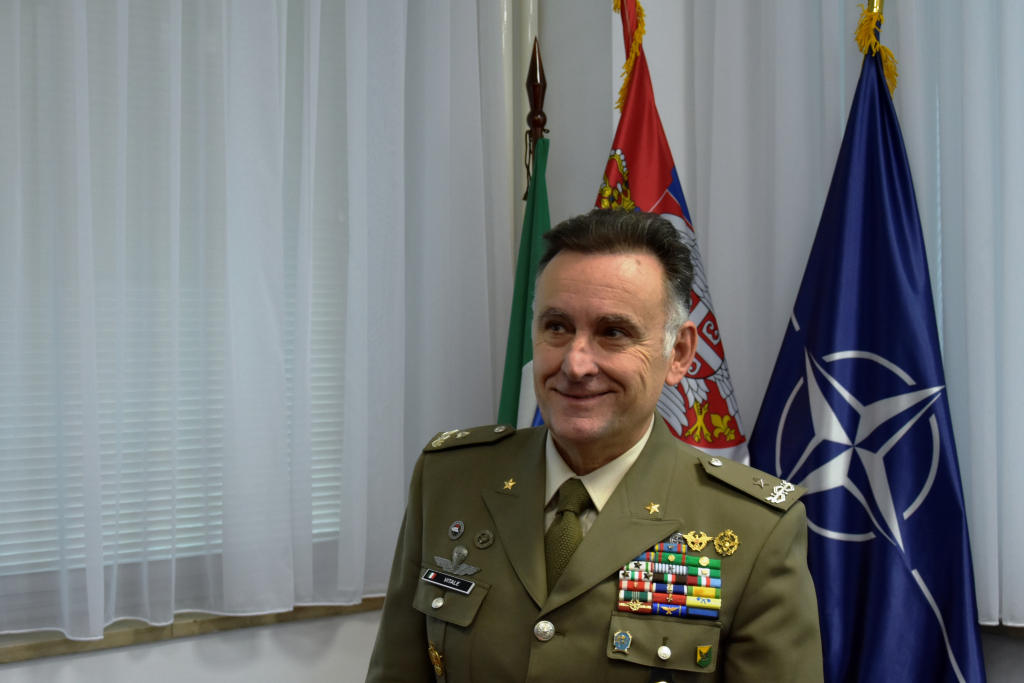






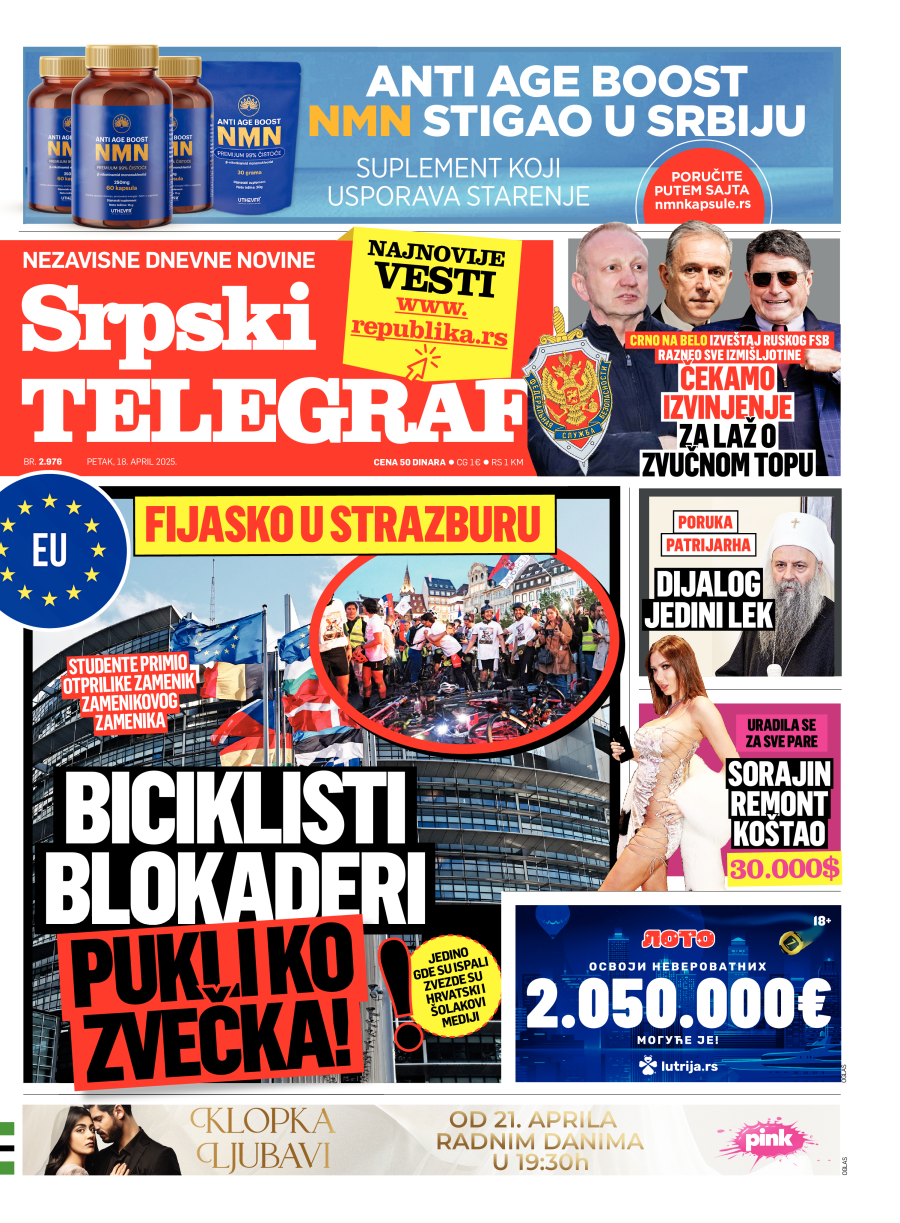
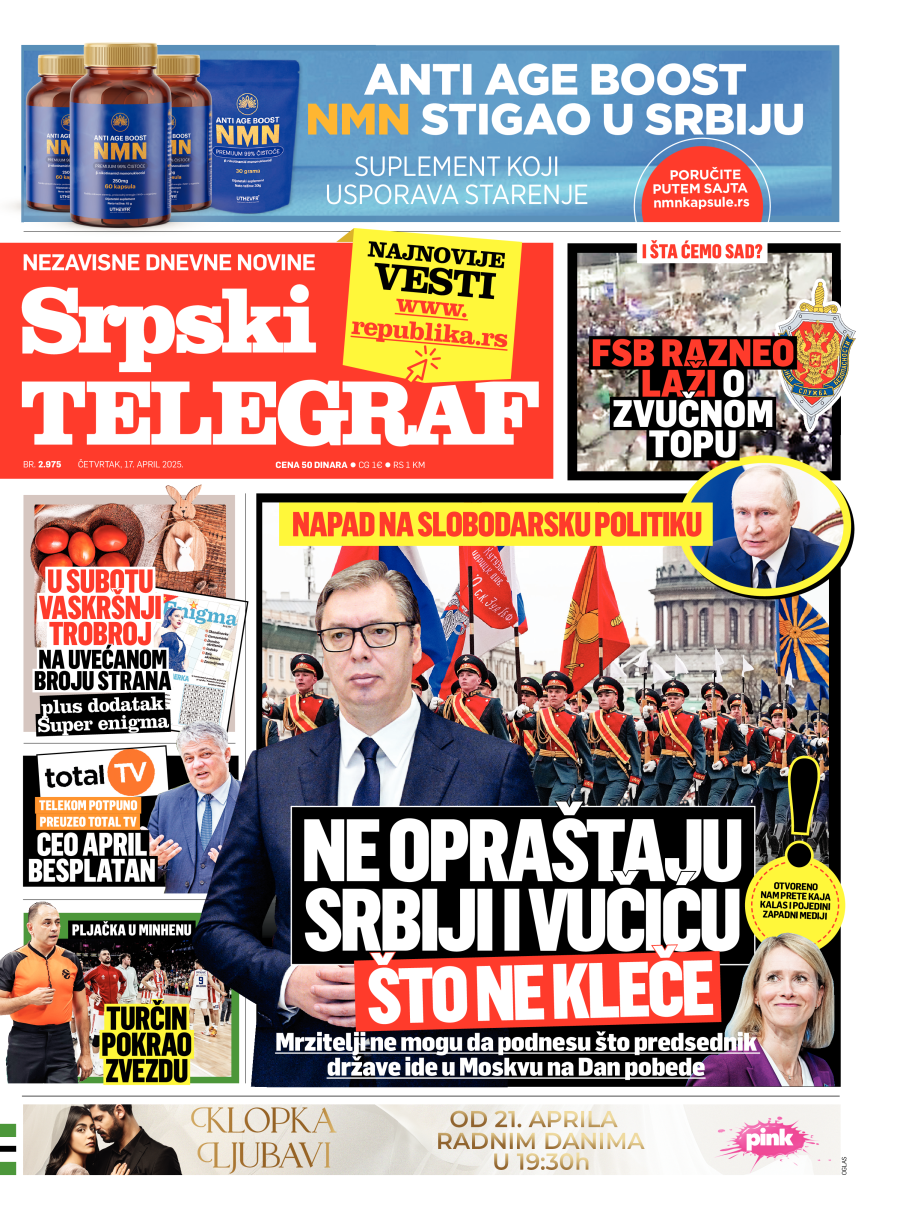
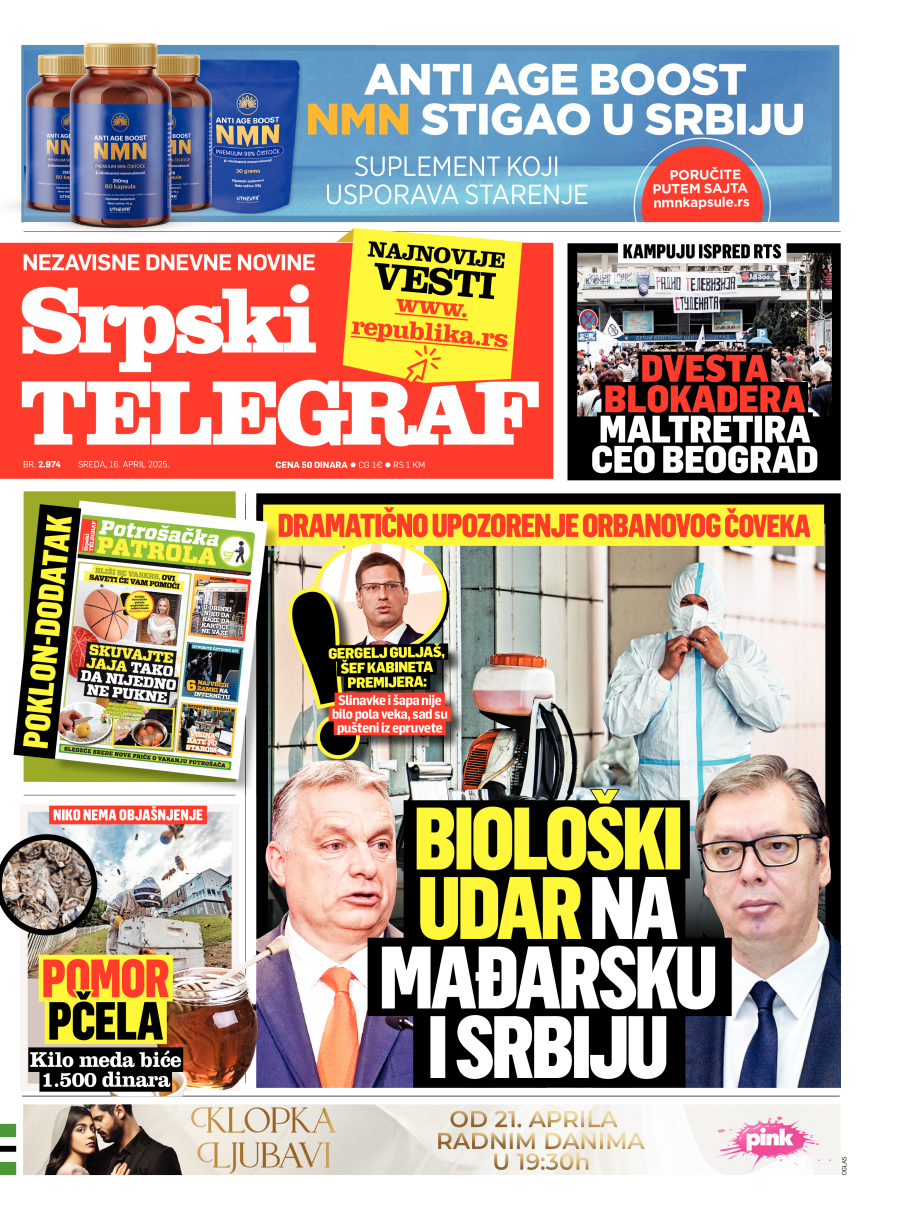
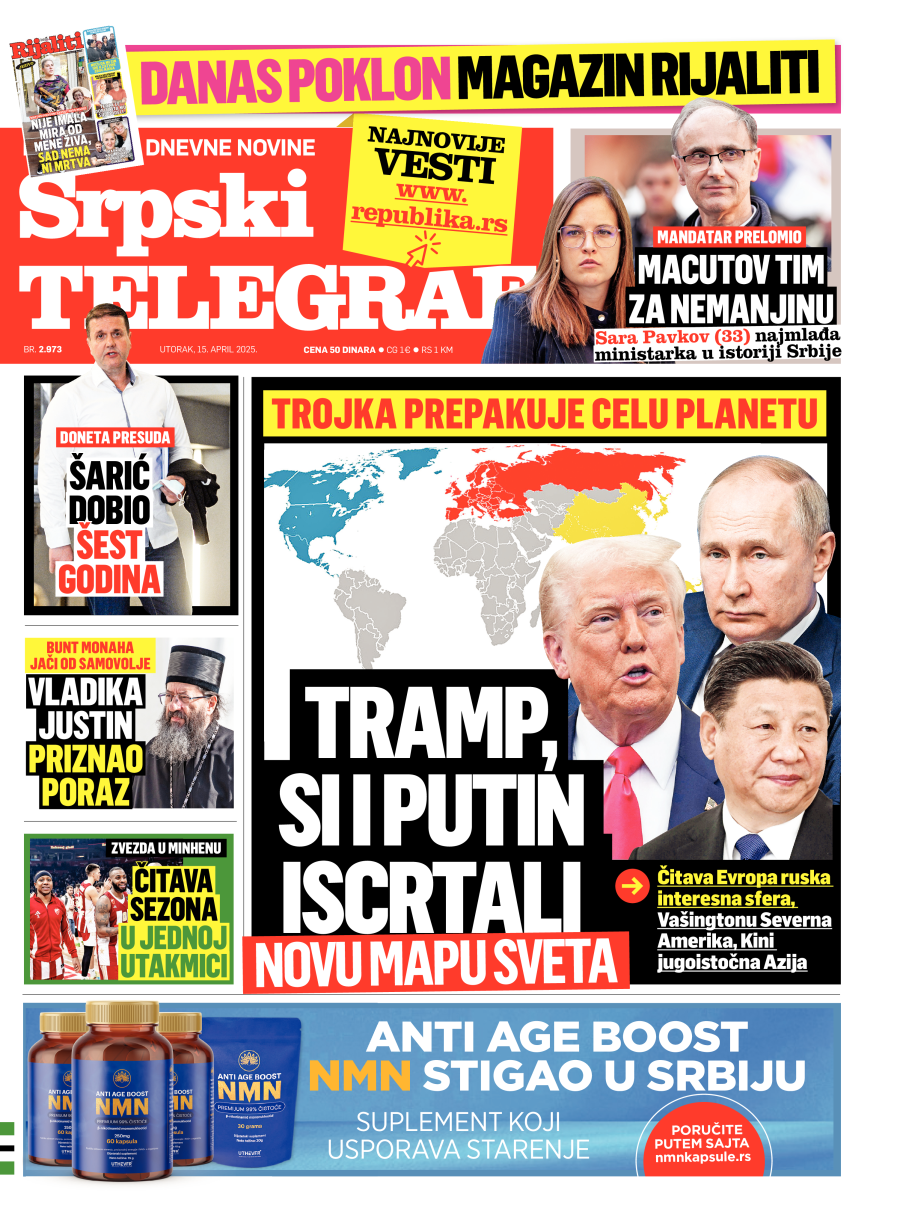
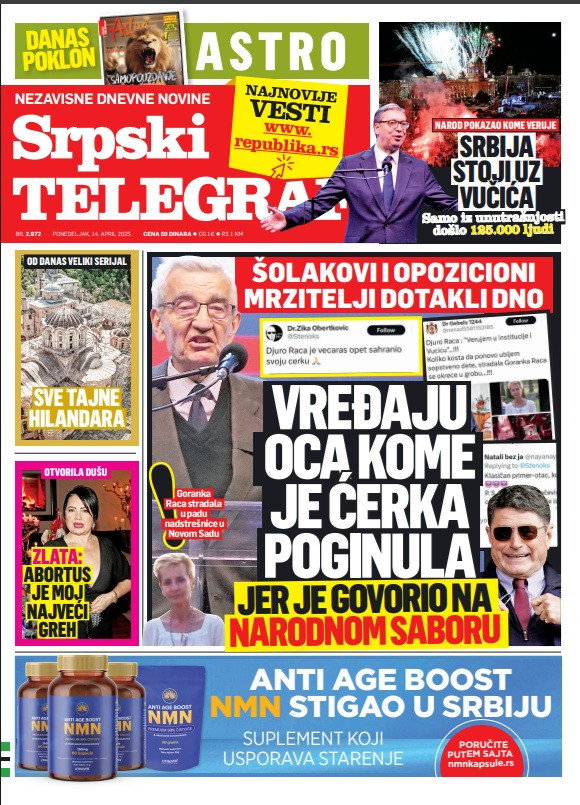
Komentari (0)